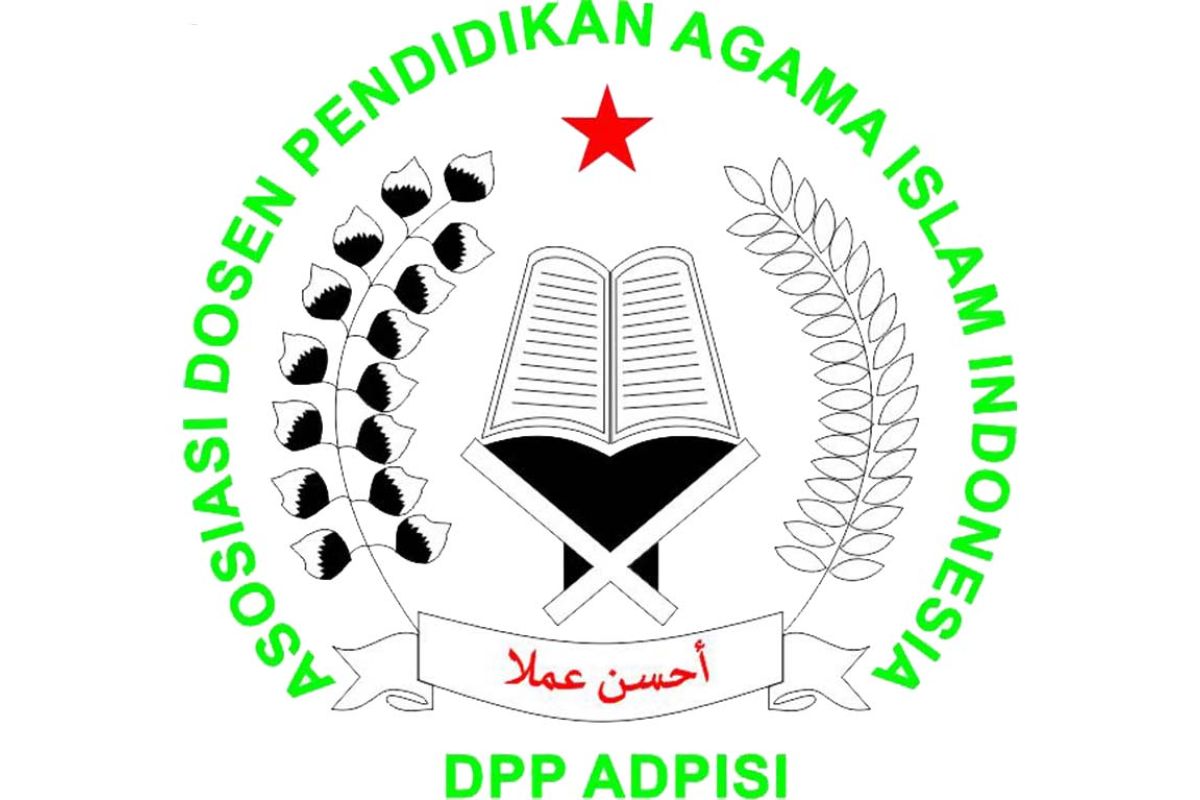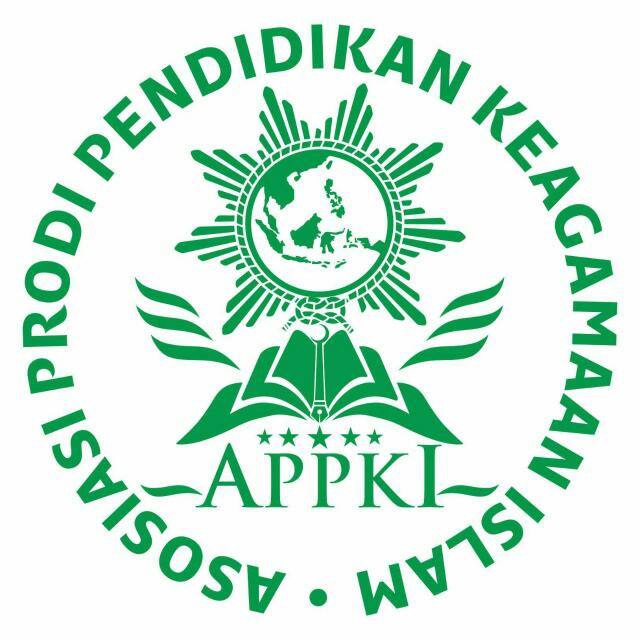Efek Proteksi Mendengarkan, Membaca, dan Menghafal Al-Qur'an terhadap Demensia
Keywords:
Al-Qur’an, Demensia, Pencegahan PrimerAbstract
Demensia merupakan penyakit dengan penurunan fungsi kognitif yang dapat memengaruhi memori dan tingkah laku. Sampai saat ini, pengobatan demensia belum menunjukkan hasil yang memuaskan, sehingga terapi pencegahan primer menjadi alternatif terbaik. Pencegahan primer difokuskan pada pemeliharaan kesehatan mental dan fungsi kognitif, salah satunya dengan kegiatan menghafal, membaca dan mendengarkan Al-Qur’an. Kajian ini bertujuan untuk mengkaji efek proteksi Al-Qur’an terhadap demensia dalam perspektif ilmu kesehatan, ilmu biomedik, dan hukum Islam. Kajian ini menggunakan metode studi literatur dengan mengumpulkan data dari berbagai sumber, seperti jurnal ilmiah, buku, dan artikel ilmiah. Hasil dari studi literatur menunjukkan bahwa kebiasaan rutin menghafal Al-Qur’an berpengaruh terhadap fungsi memori jangka pendek, kecerdasan intelektual dan emosional. Rutinitas membaca Al-Qur’an menurunkan tekanan darah, menurunkan tingkat stres dan meningkatkan kebahagiaan, menjaga kestabilan emosi, menurunkan tingkat depresi, dan meningkatkan kecerdasan emosional. Memperdengarkan atau memberikan paparan murottal Al-Qur’an pada orang sehat maupun orang sakit telah menjadi terapi tambahan di beberapa negara muslim karena secara signifikan dapat menurunkan stres, derajat hipertensi, skala nyeri, meningkatkan sistem imun dan hormon β-endorphin. Suara Al-Qur’an yang dipaparkan pada hewan coba dan kultur sel dilaporkan secara signifikan dapat menurunkan tingkat stres oksidatif, meningkatkan proliferasi neuron dan volume otak, sehingga dapat dijadikan alternatif pencegahan primer terhadap demensia.
References
Alzheimer’s Association, “2022 Alzheimer’s Disease Facts and Figures.”
Alzheimers Dement, Vol. 18, No. 4 (2022). https://pubmed.ncbi.nlm.nih.gov/35289055/
Annisa, Pengaruh Menghafal Al-Qur’an Terhadap Kecerdasan Kognitif Siswa Madrasah Aliyah Pondok Pesantren Nahdlatul Ulum Soreang Maros”, Universitas Muhammadiyah Makassar, 2020.
Ardiansyah, “Manfaat Terapi Murottal Bagi Kesehatan”, Kementrian Kesehatan, Direktoran Jendral Pelayanan Kesehatan. 28 Juli 2022. https://yankes.kemkes.go.id/view_artikel/626/manfaat-terapi-murottal-bagi-kesehatan
Ardiyanti, Aprilia Dewi, “Perspektif Al-Qur’an Tentang Sel Saraf Dalam Kajian Integrasi Agama Dan Sains”, In Prosiding Konferensi Integrasi Interkoneksi Islam Dan Sains, Vol. 2 (2020). http://sunankalijaga.org/prosiding/index.php/kiiis/article/view/375
Azis, Wahida., Nooryanto, M., Andarini, Sri., “Terapi Murotal Al-Qur’an Surat Arrahman Meningkatkan Kadar β-Endorphin Dan Menurunkan Intensitas Nyeri Pada Ibu Bersalin Kala I Fase Aktif”, Jurnal Kedokteran Brawijaya, Vol. 28, No. 3 (2015). https://doi.org/10.21776/UB.JKB.2015.028.03.9
Aziz, Naeemah Abd., Ali, Saedah., Hassan, Mohamad Hasyizan., “Effects of Holy Quran Listening on Physiological Stress Response in Intensive Care Unit Patients”, International Journal of Human and Health Sciences (IJHHS), Vo. 27 (2019). https://www.proquest.com/openview/175dd7ffba408805b41b1817c6b055c9/1?pq-origsite=gscholar&cbl=2032010
Aziza, Istiqomah Nur., Wiyono, Nanang., Fitriani, Afia., “Pengaruh Mendengarkan Murottal Al-Qur’an terhadap Memori Kerja”, Psikis: Jurnal Psikologi Islami, Vol. 5, No. 1 (2019). https://doi.org/10.19109/psikis.v5i1.2547
Balbag, M. Alison., Pedersen, Nancy L., Gatz, Margaret, “Playing a Musical Instrument as a Protective Factor against Dementia and Cognitive Impairment: A Population-Based Twin Study.”, International Journal of Alzheimer’s Disease, 2014. https://doi.org/10.1155/2014/836748
Bhatara, Tryando., Achadiyani, Achadiyani., Gamayani, Uni., Herman, Herry., “Perinatal Al-Quran Sound to Novel Object Recognition Memory and Hippocampal Cell Count”, Global Medical & Health Communication (GMHC), Vol. 6, No. 3 (2018). https://doi.org/10.29313/gmhc.v6i3.3748
Brun, Claire., Exbrayat, Jean-Marie, “The Effects of Sounds and Music on Cells and Organisms: A Promising and Developing Area of Research”, Athens Journal of Sciences, Vol. 9, No. 3 (2022). https://doi.org/10.30958/ajs.9-3-1
Ermayani, Tri., Saputra, Iyus Herdiana, “The Concept of Alzheimer’s Disease in Qur’an.” In Proceedings of the 3rd Borobudur International Symposium on Humanities and Social Science 2021 (BIS-HSS 2021), 2023. http://doi.org/10.2991/978-2-494069-49-7_40
Fukui, Hajime., Toyoshima, Kumiko, “Music Facilitate the Neurogenesis, Regeneration and Repair of Neurons”, Medical Hypotheses, Vol. 71, No. 5 (2008). https://doi.org/10.1016/j.mehy.2008.06.019
Hashim, Rosyafirah., Sha’ban, Munirah, “Does Quranic Recitation Work On A Non-Audible Cell? An Experimental Study In A Monolayer Cells Culture Model”, Journal of Islam and Science, Vol. 8, No. 2 (2021). https://doi.org/10.24252/jis.v8i2.22421
Idayu, Hafisa, “Manajemen Waktu Penghafal Al-Qur’an Dalam Meraih Prestasi Akademik”, Jurnal Transformatif, Vol. 4, No. 1 (2020). http://e-journal.iain-palangkaraya.ac.id/index.php/TF/article/view/1764
Irawan, Roedi, Nutrisi Molekular dan Fungsi Kognitif, Surabaya: Airlangga University Press, 2020.
Jariah, Ainun, “Meningkatkan Kecerdasan Emosional Siswa Melalui Kebiasaan Membaca Al-Quran”, Jurnal Studia Insania, Vol. 7, No. 1 (2019), 52-65. https://doi.org/10.18592/jsi.v7i1.2630
Julianto, Very., Etsem, Magda Bhinnety, “The Effect of Reciting Holy Qur’an toward Short-Term Memory Ability Analysed Trought the Changing Brain Wave”, Jurnal Psikologi, Vol. 38, No. 1 (2011). https://doi.org/10.22146/jpsi.7661
Kementerian Agama Saudi Arabia, Tafsir Al-Muyassar, Madinah Al-Munawwarah: Majma’ Malik Fahad, 2012.
Khalilati, Noor., Humaidi, Muhammad, “Pengaruh Terapi Murottal Al-Qur’an Terhadap Penurunan Skala Nyeri Pada Pasien Cedera Kepala Di Ruang Bedah Umum RSUD Ulin Banjarmasin”, Al Ulum Sains Dan Teknologi, Vol. 5, No. 1 (2019). http://dx.doi.org/10.31602/ajst.v5i1.2561
Kurniasari, Silvie., Yanti, Ari Hepi., Setyawati, Tri Rima., “Kadar Malondialdehyde Induk Dan Struktur Morfologis Fetus Mencit (Mus Musculus) Yang Diperdengarkan Murottal Dan Musik Rock Pada Periode Gestasi.” Protobiont, Vol. 6, No. 3 (2017). https://dx.doi.org/10.26418/protobiont.v6i2.20819
Lakzaei, Javad., Sanagoo, Akram., Kavosi, Ali., Jouybari, Leila., Kavosi, Abolfazl., Haghdost, Zeynab., Nasiri, Hossein., “A Comparison of Quran-Memorizers and Non Memorizers’ Mental Health in Gorgan”,
Journal of Research on Religion & Health, Vol. 4, No. 5 (2019). https://journals.sbmu.ac.ir/jrrh/article/download/17856/16175/
Lestard, Nathalia., Valente, Raphael., Lopes, Anibal., Capella, Márcia A., “Direct Effects of Music in Non-Auditory Cells in Culture”, Noise and Health, Vol. 15, No. 66 (2013). https://journals.lww.com/nohe/fulltext/2013/15660/direct_effects_of_music_in_non_auditory_cells_in.4.aspx
Lestari, Anis Puni, Intensitas Membaca Al-Quran Dengan Happiness, Malang: Universitas Muhammadiyah Malang, 2015; Harris Fadhillah, Pengaruh Membaca Alquran Terhadap Kestabilan Emosi Siswa Kelas XI SMAIT Abu Bakar Yogyakarta, Yogyakarta: Universitas Negeri Yagyakarta, 2016.
Mahmun, Efektifitas Menghafal Al-Qur’an Terhadap Kecerdasan Kognitif Dan Akhlak (Studi Kasus Pada Kelas XI MA Darunnajah 2 Cipining Bogor), Tesis Pendidikan Agama Islam, Jakarta: Institut Ilmu Al-Qur’an, 2022
Matthews, Steve, “Dementia and the Power of Music Therapy”, Bioethics, Vol. 29, No. 8 (2015). https://doi.org/10.1111/bioe.12148
Mayrani, Eva Dwi., Hartati, Elis, “Intervensi Terapi Audio Dengan Murottal Surah Ar-Rahman Terhadap Perilaku Anak Autis”, The Soedirman Journal of Nursing, Vol. 8, No. 2 (2013). https://dx.doi.org/10.20884/1.jks.2013.8.2.470
Mehrafsar, Ali., Mokhtari, Mohammad Javad, “Effect of Exposure to Quran Recitation on Cell Viability, Cell Migration, and BCL2L12 Gene Expression of Human Prostate Adenocarcinoma Cell Line in Culture”, Health, Spirituality and Medical Ethics, Vol. 5, No. 4 (2018). https://www.sid.ir/FileServer/JE/50010020180407.pdf
Mutiah, Roihatul., Mustofa, Muhammad Ragib., Indrawijaya, Yen Yen Ari., Hakim, Abdul., Annisa, Rahmi., Susanti, Nurlaili., Nashichuddin, Ach., Zainuddin, Muhammad., “Exposure of Murattal Al-Quran Audio Enhances Cisplatin Activity on Growth Inhibition and Cell Cycle Modulation on Hela Cells”, Indonesian Journal of Cancer Chemoprevention, Vol. 10, No. 2 (2019). http://dx.doi.org/10.14499/indonesianjcanchemoprev10iss2pp71-79
Nugraheni, Dian., Mabruri, Moh. Iqbal., Stanislaus, Sugiyarta., “Efektivitas Membaca Al-Qur’an Untuk Menurunkan Stres Akademik Pada Siswa Kelas XI SMA Negeri 1 Kebumen”, Intuisi: Jurnal Psikologi Ilmiah, Vol. 10, No. 1 (2018). https://doi.org/10.15294/intuisi.v10i1.17386
Putra, Perdana Suteja., Gumilar, Retno., Kusuma, Sasmita Rahma., Purnomo, Hari., Basumerda, Chancard., “The Effect of Quran Murottal’s Audio on Short Term Memory”, MATEC Web of Conferences, Vol. 154, No. 4 (2018). https://doi.org/10.1051/matecconf/201815401060
Rahman, Mukaila Alade., Aribisala, Benjamin., Ullah, Irfan., Omer, Hammad., “Association between Scripture Memorization and Brain Atrophy Using Magnetic Resonance Imaging”, Acta Neurobiologiae Experimentalis, Vol. 80, No. 1 (2020). https://ane.pl/index.php/ane/article/view/2233
Rahmawati, Nugraini Tri, Pengaruh Intensitas Menghafal Al Qur’an Terhadap Hasil Belajar Kognitif Siswa Pada Mata Pelajaran Al Qur’an Hadis Di SD Terpadu Darunnajah Mranggen Demak, Semarang: Universitas Islam Negeri Walisongo, 2021.
Saquib, Nazmus., Saquib, Juliann., Alhadlag, Abdulrahman., Albakour, Mohamad Anas., Aljumah, Bader., Sughayyir, Mohammed., Alhomidan, Ziad., Alminderej, Omar., Aljaser, Mohamed., Al-Dhlawiy, Ahmed Mohammed., Al-Mazrou, Abdulrahman., “Health Benefits of Quran Memorization for Older Men”, SAGE Open Medicine, Vol. 5 (2017). https://doi.org/10.1177/2050312117740990
Silaturrohim, Sahla, Pengaruh Durasi Paparan Murottal Surat Al-Fatihah Terhadap Proliferasi Sel Saraf Otak Tikus (Rattus Norvegicus) Secara In Vitro, Skripsi, Malang: Universitas Islam Negeri maulana Malik Ibrahim, 2016.
Sirin, Sumeyye., Metin, Baris., Tarhan, Nevzat, “The Effect of Memorizing the Quran on Cognitive Functions”, The Journal of Neurobehavioral Sciences, Vol. 8, No. 1 (2021). https://journals.lww.com/jons/fulltext/2021/08010/The_Effect_of_Memorizing_the_Quran_on_Cognitive.3.aspx
Taghiabad, Batool Alizadeh., Ahrari, Shahnaz., Garai, Zahra., “Mental Health and Stress-Coping Strategies among Memorizers of Holy Quran”, Health, Spirituality and Medical Ethics, Vol. 2 No. 2 (2015). https://darulquran.co.uk/wp-content/uploads/2021/02/Mental-health-and-stresscoping-strategies-among-memorizers-of-holy-quran.pdf
Tamtaji., Behnam, M., Taghizadeh, M., Yousefi., “Effect of the Quran Voice on Learning and Memory in the Animal Model”, Journal of Quran and Medicine, Vol. 3, No. 1 (2018).
Tazkiah, Miftah., Septadina, Indri Seta., Zulissetiana, Eka Febri., Nindela, Rini., Wardiansah., “Peningkatan Memori Jangka Pendek Dengan Menggunakan Pemeriksaan Forward Digit Span Setelah Rutin Membaca Alquran”, Jurnal Kedokteran dan Kesehatan: Publikasi Ilmiah Fakultas Kedokteran Universitas Sriwijaya, Vol. 10, No. 1 (2023). https://doi.org/10.32539/JKK.V10I1.19736
Umar, Angel Anggita., Dharmmika, Susanti., Rahmi, Diana., “Pengaruh Terapi Murottal Al-Qur’an Terhadap Memori Jangka Pendek Pada Pasien Epilepsi Anak Di Klinik Rawat Jalan Anak RSUD Al-Ihsan Bandung Tahun 2019”, Prosiding Pendidikan Dokter, Vol. 6, No. 1 (2020). http://dx.doi.org/10.29313/kedokteran.v0i0.20131
Widayat, Much. Nurtian, Pengaruh Kebiasaan Membaca Al-Qur’an Terhadap Prestasi Belajar Pendidikan Agama Islam Dan Budi Pekerti Di SMK Al- Manshuriyah Kabupaten Tasikmalaya, Jakarta: Universitas Islam Negeri Syarif Hidayatullah, 2021.
World Health Organization, “Dementia.” 15 March 2023. https://www.who.int/news-room/fact-sheets/detail/dementia
Yani, Ayu Putri., Joewono, Hermanto Tri, “Effect of Murotal Sound Stimulation during Pregnancy on the Number of Neuron Cells of Cerebrum and Cerebellum of the Newborn Rattus Norvegicus”, Indian Journal of Forensic Medicine & Toxicology, Vol. 15, No. 4 (2021). https://ijfmt.com/scripts/IJFMT_October-December%202021%20(5)_compressed%20(1)%20(3).pdf
Downloads
Published
How to Cite
Issue
Section
License
Copyright (c) 2024 Jurnal Ruhul Islam

This work is licensed under a Creative Commons Attribution-ShareAlike 4.0 International License.
Jurnal Ruhul Islam is published by Universitas YARSI under license:

This work is licensed under a Creative Commons Attribution-ShareAlike 4.0 International License.
You are free to:
Share — copy and redistribute the material in any medium or format
Adapt — remix, transform, and build upon the material for any purpose, even commercially.
The licensor cannot revoke these freedoms as long as you follow the license terms.
Under the following terms:
Attribution — You must give appropriate credit, provide a link to the license, and indicate if changes were made. You may do so in any reasonable manner, but not in any way that suggests the licensor endorses you or your use.
ShareAlike — If you remix, transform, or build upon the material, you must distribute your contributions under the same license as the original.
No additional restrictions — You may not apply legal terms or technological measures that legally restrict others from doing anything the license permits.
Notices:
You do not have to comply with the license for elements of the material in the public domain or where your use is permitted by an applicable exception or limitation.
No warranties are given. The license may not give you all of the permissions necessary for your intended use. For example, other rights such as publicity, privacy, or moral rights may limit how you use the material.

 Aan Royhan
Aan Royhan
 Universitas YARSI, Jakarta
Universitas YARSI, Jakarta









